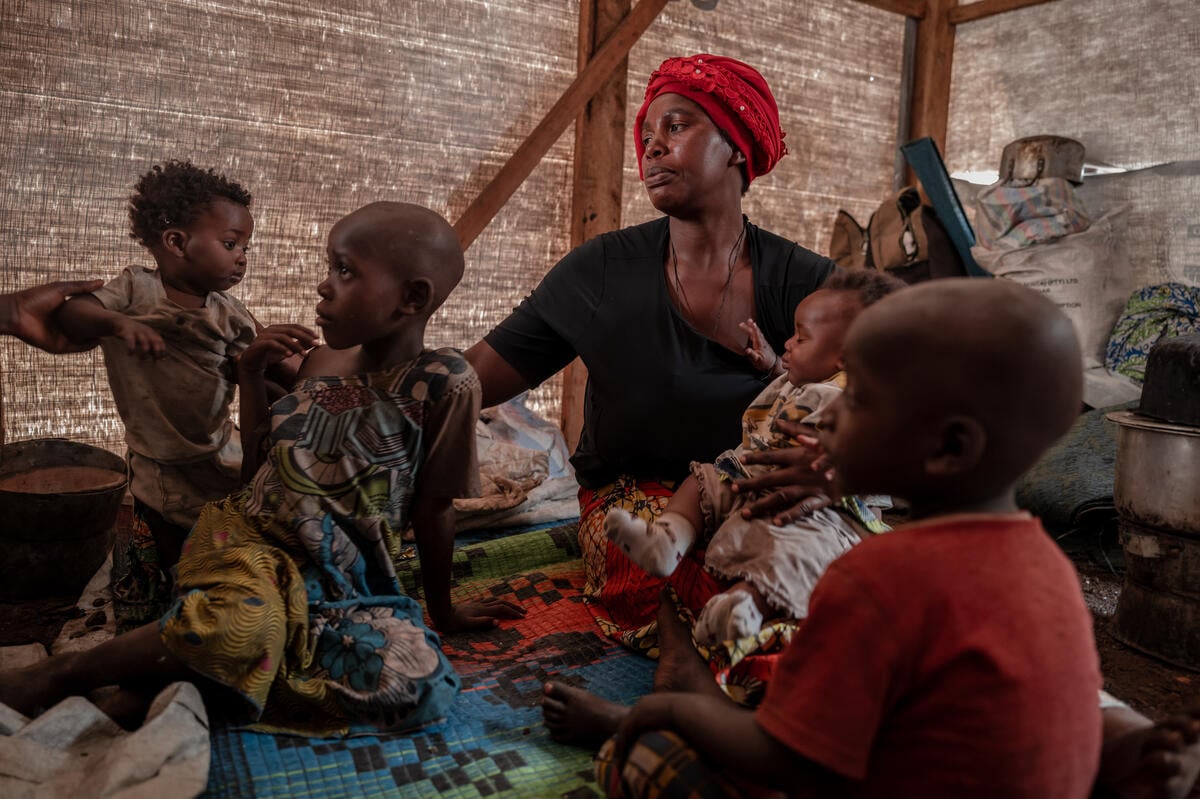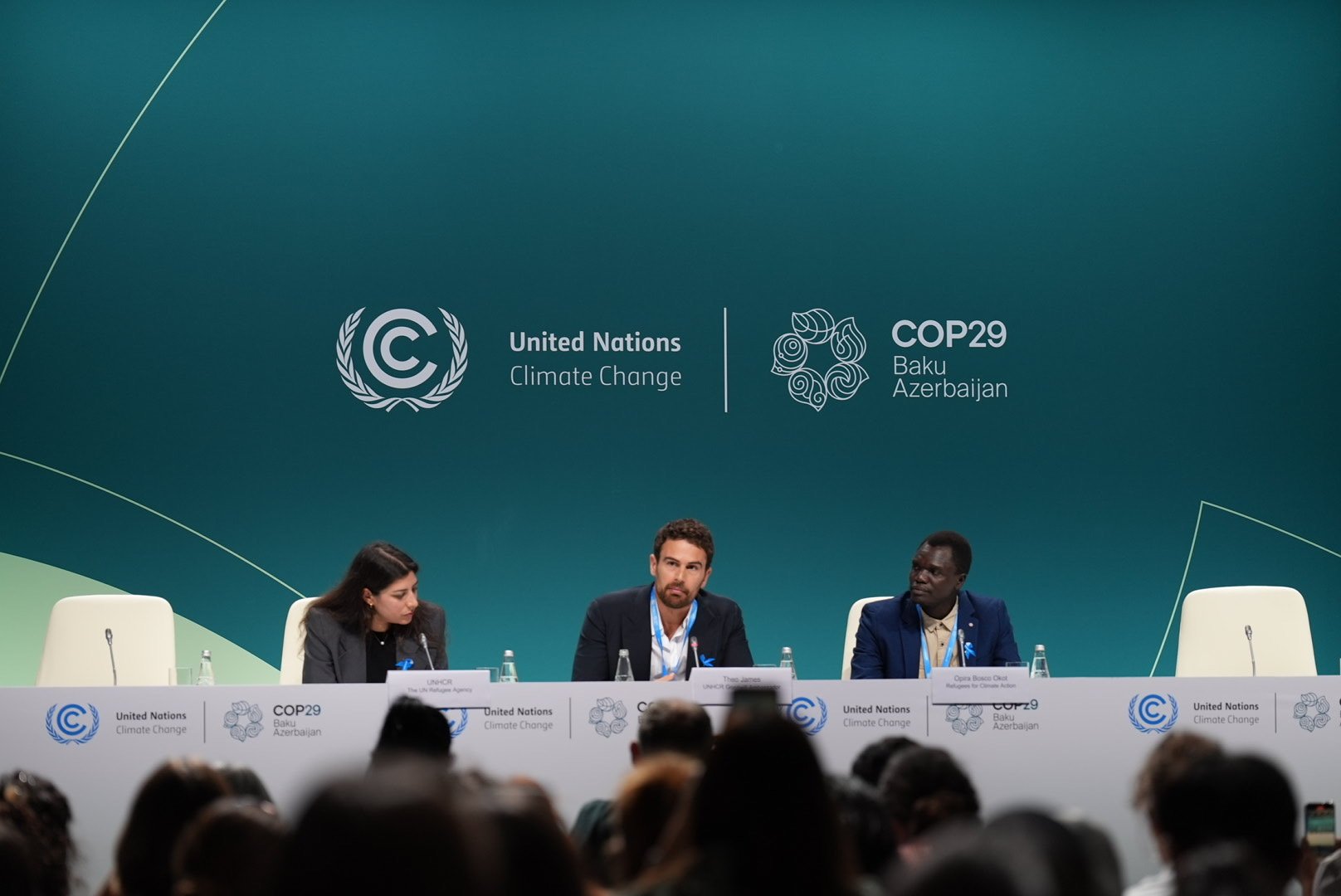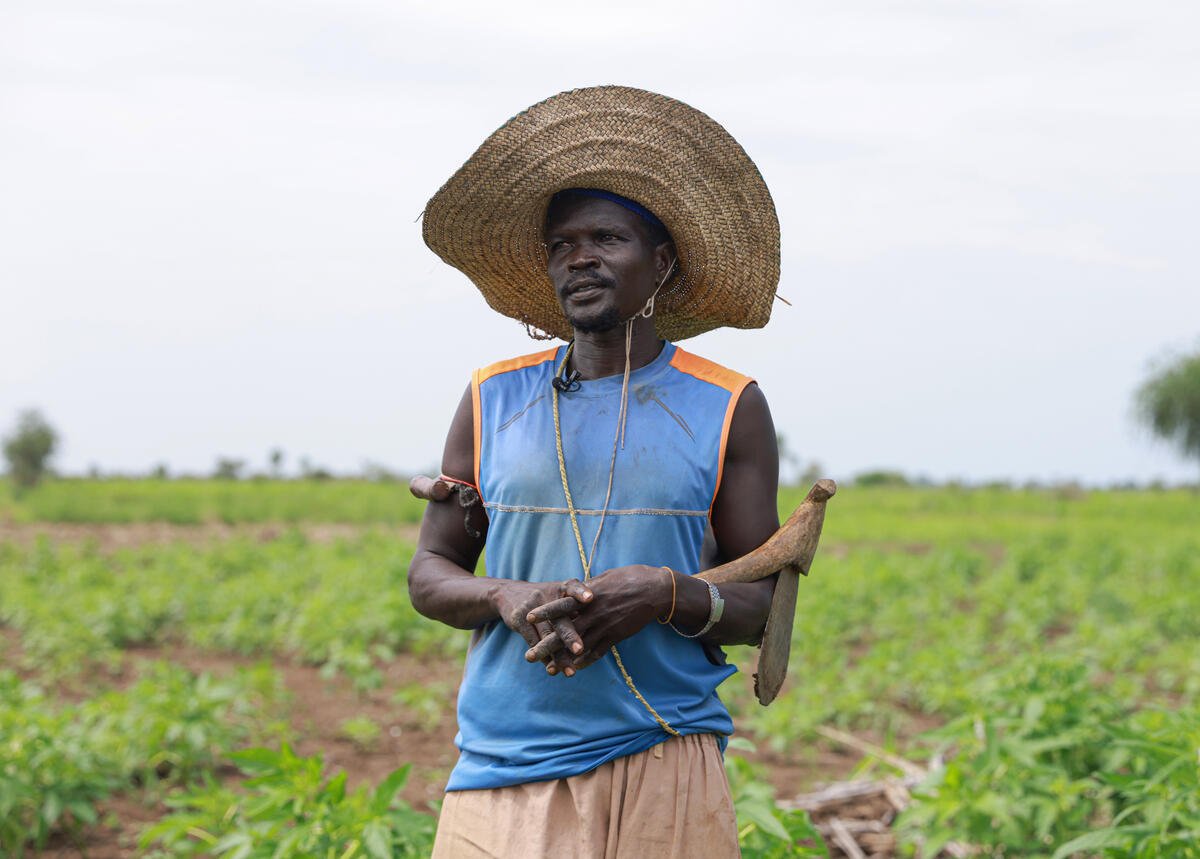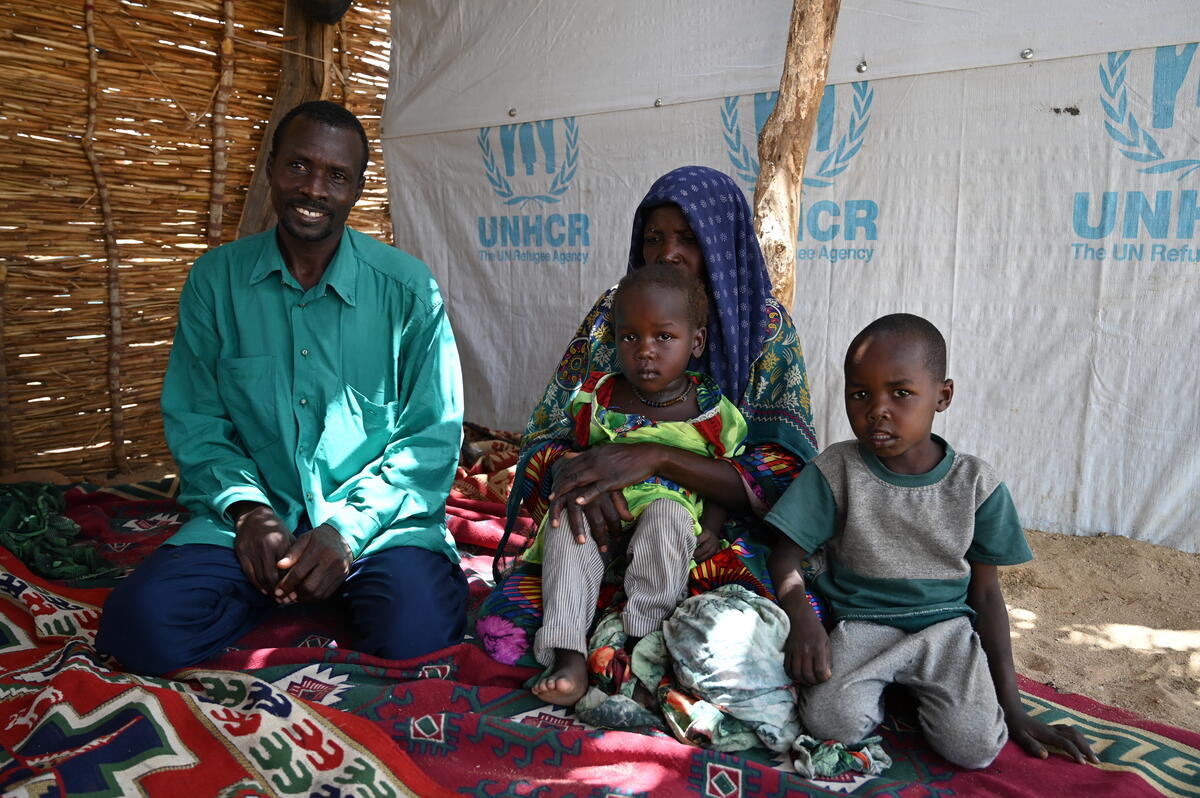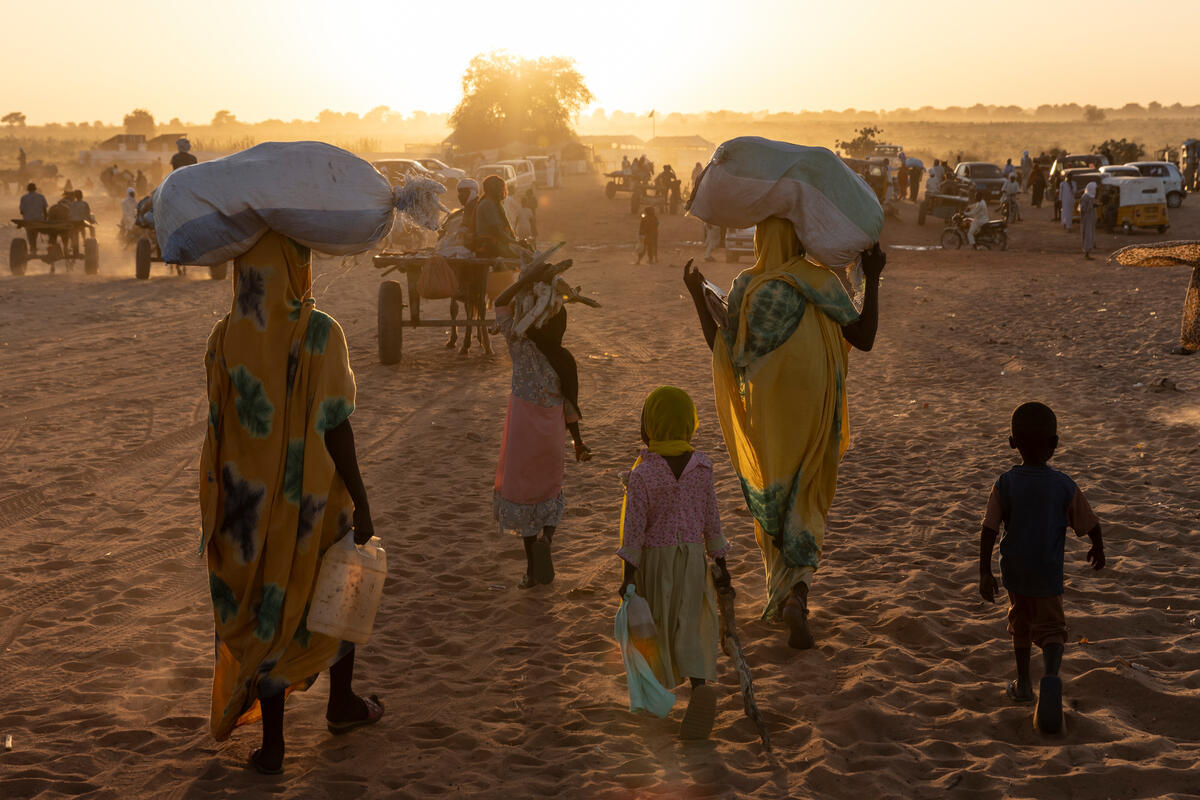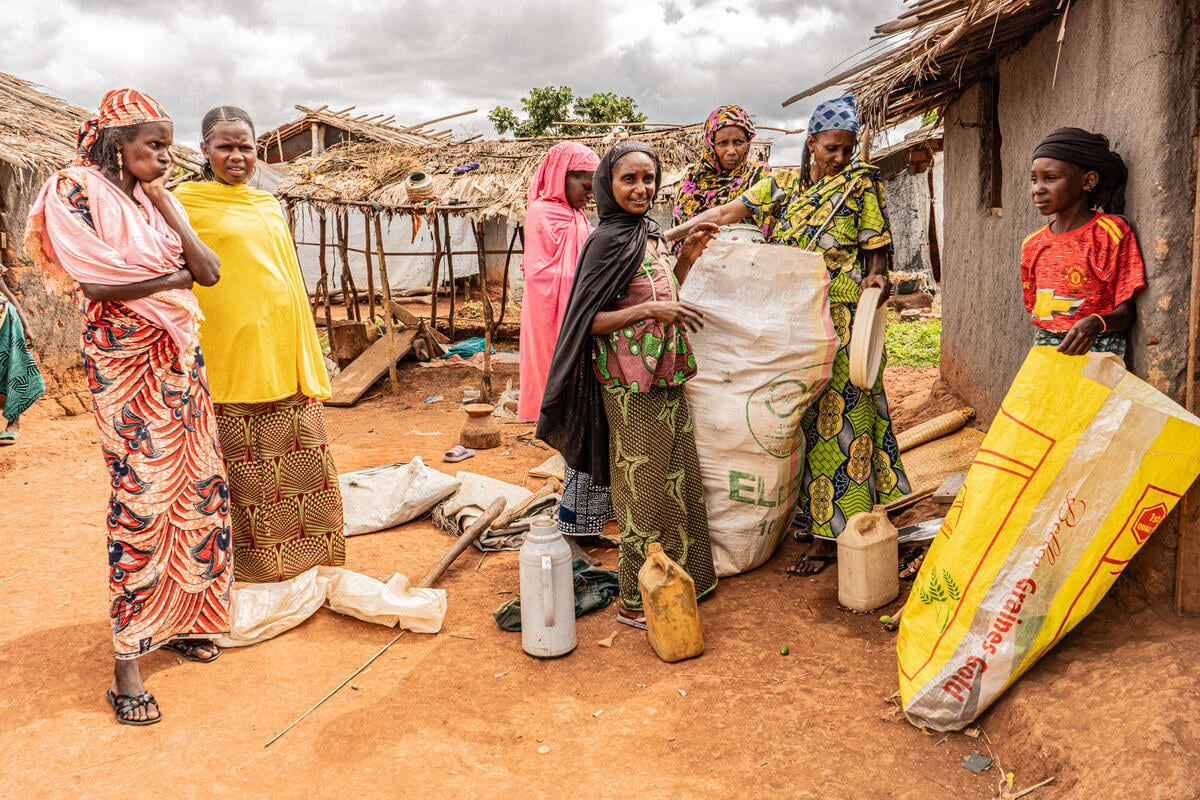Women and girls mired in Sudan crisis suffer surge in sexual violence
Women and girls mired in Sudan crisis suffer surge in sexual violence
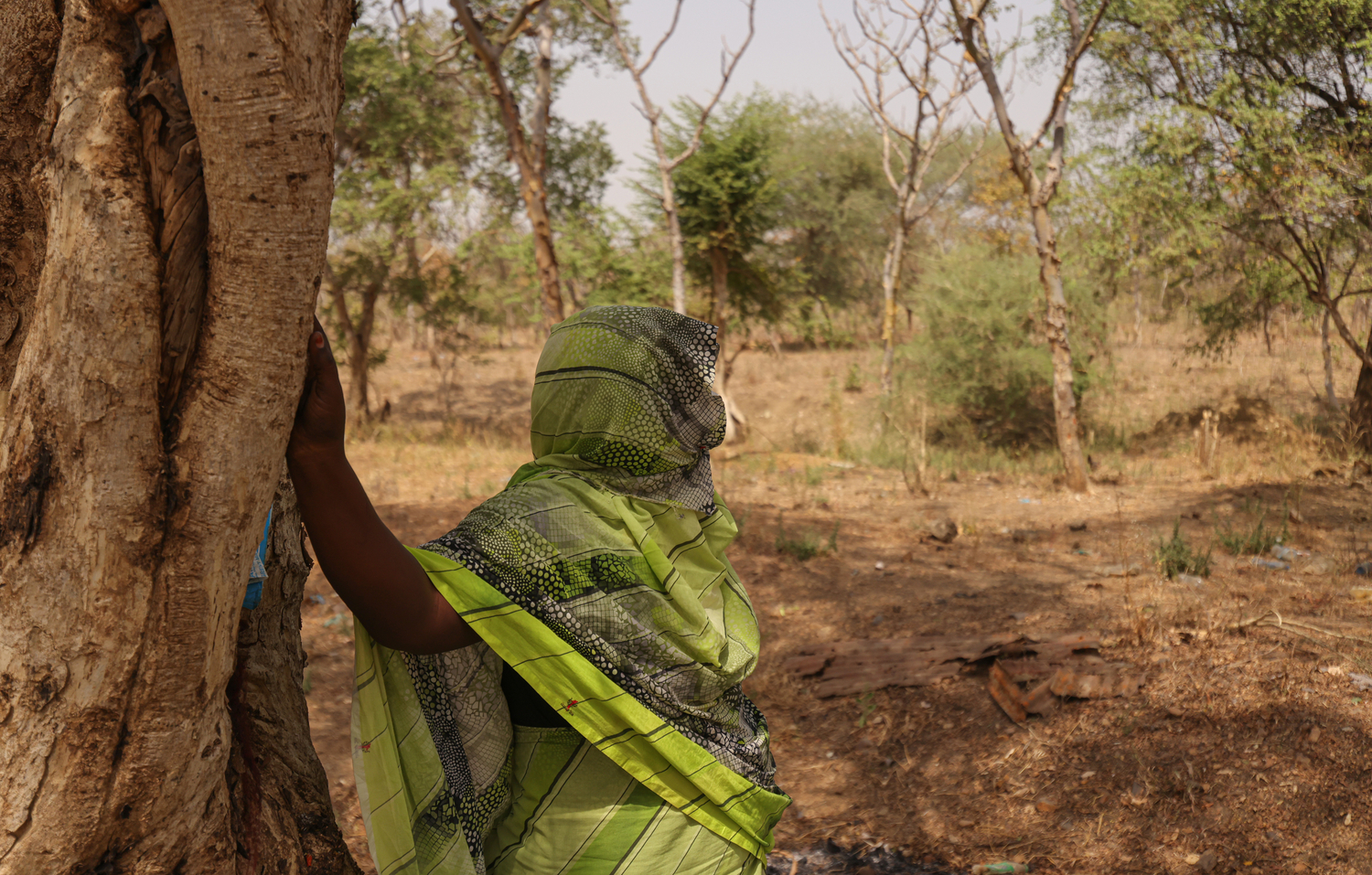
Sudanese refugee and mother-of-five Fatima* stands near her family's shelter at a reception site near Ethiopia's border with Sudan.
But their sense of security was cruelly shattered when three armed men came to the door late one evening demanding food and water. After she gave them water they went on their way, but later that night, one of the men returned with his face covered and threatened to shoot Fatima if she did not do as he said.
“My children were all inside … and I was afraid that something bad would happen to them. They are very young,” Fatima said. “I locked them inside with their older brother and said to keep quiet and that if anything happens to me, he should take his sisters and brother and leave.”
Fatima was raped on three separate occasions over a period of a week. Desperate for a safe route out of Khartoum with her children, she learned of a bus being organized to take families out of the city closer to the border with Ethiopia – and registered for the journey.
After two months of relative safety there, Fatima discovered that she was pregnant. Determined to leave Sudan and the conflict behind, she sold the last of her gold to pay for the family’s travel across the border to Ethiopia.
She and her children are now living in a family shelter at a site on the Ethiopian side of the border, where UNHCR, the UN Refugee Agency, and its partners are helping the authorities to provide refugees with assistance and services. She has received psychosocial support and been referred to the regional hospital for medical care. She has also registered with the Red Cross to try to trace her husband and eldest son.
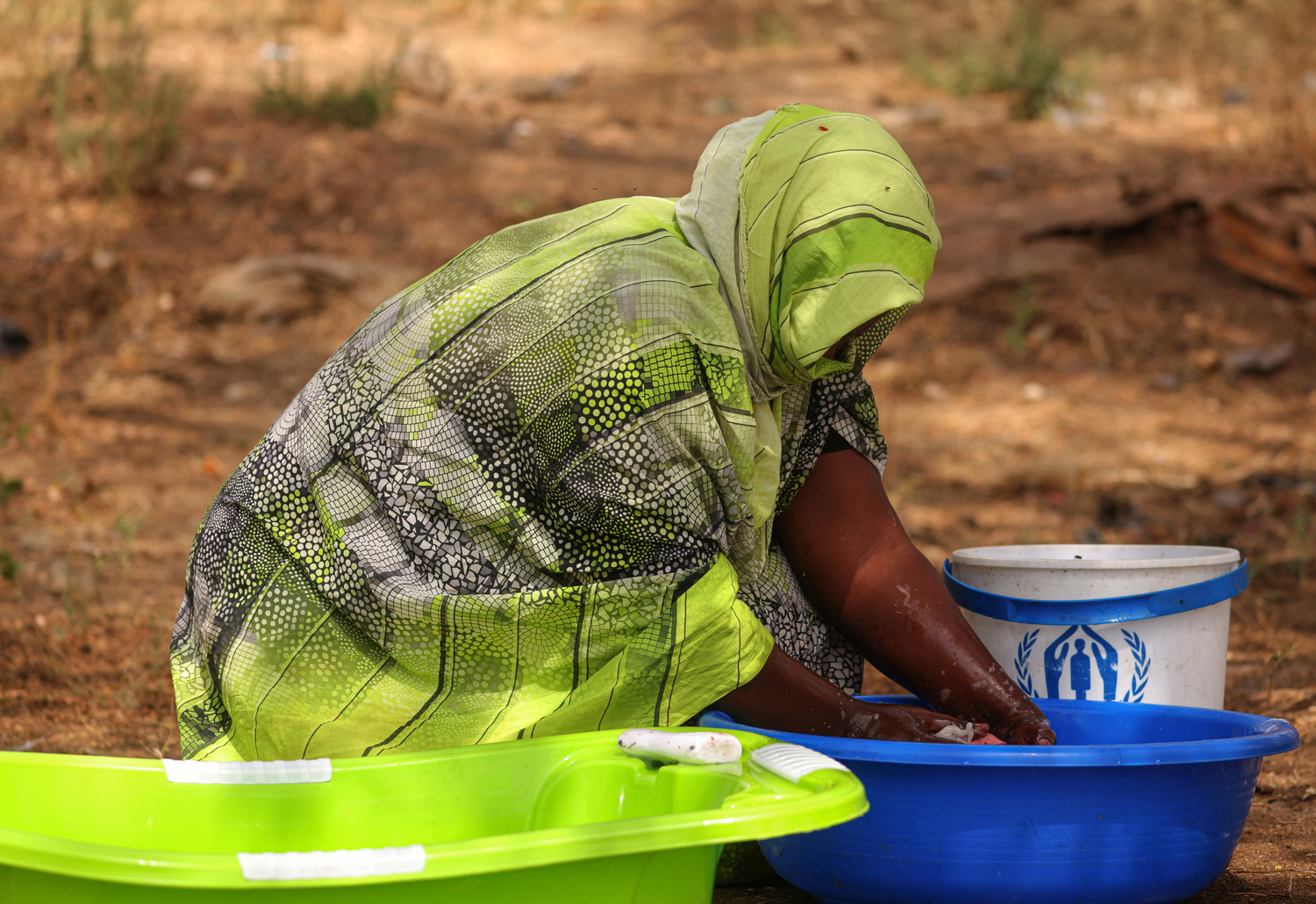
Fatima* does laundry outside the shelter where she lives with four of her children.
“Here there is no gunfire … we get water to drink and somewhere to sleep without [the threat of] rape,” Fatima said. “[But] I am pregnant, … I don’t know how long we are going to stay here without a house, without a door to close so you can feel safe. I need help.”
One year since the outbreak of conflict between the Sudanese Army and the Rapid Support Forces, more than 8.6 million people have been driven from their homes, including 6.8 million people displaced inside the country and more than 1.8 million refugees and returnees who have fled to neighbouring countries.
Shocking levels of violence
Women and girls account for more than half of all registered refugees from Sudan, although the proportion is higher in some host countries. On top of the inherent dangers posed by conflict and displacement, women and girls have been exposed to shocking levels of sexual violence, whether in conflict-affected areas inside Sudan, on the move, or in countries of asylum.
In a report on gender-based violence during the crisis published at the end of 2023, UNHCR reported that women and girls inside Sudan were bearing the brunt of the consequences of the conflict, including “alarming” levels of sexual violence. Many of those seeking asylum have experienced or witnessed harassment, abduction, rape, sexual assault, sexual exploitation and other forms of violence during their journeys.
Salma*, 26, lived with her husband and three children in El Geneina, the capital of Sudan’s West Darfur region. The family’s house was burned down when conflict engulfed the city, and they spent over a week sheltering in abandoned buildings in the neighbourhood before setting out for the border with Chad.
Before reaching the border, Salma’s husband was seized by a group of armed men and she and her children were forced to continue without him. A short while later, four more armed men stopped the group and told Salma to put down the child she was carrying.
“They hit me, and I fell,” Salma said. “I fainted, and I don't know what they did to me but when I opened my eyes, I saw my children next to me [and] apart from the dress I was wearing, I had no more clothes on.”
The mother and one of her children were beaten by another man wielding a club on the Sudanese side of the border, who stole Salma’s money, two mobile phones and other belongings. Finally, they reached the river marking the frontier with Chad where she waded back and forth through the muddy, waist-high water to carry her children to safety.
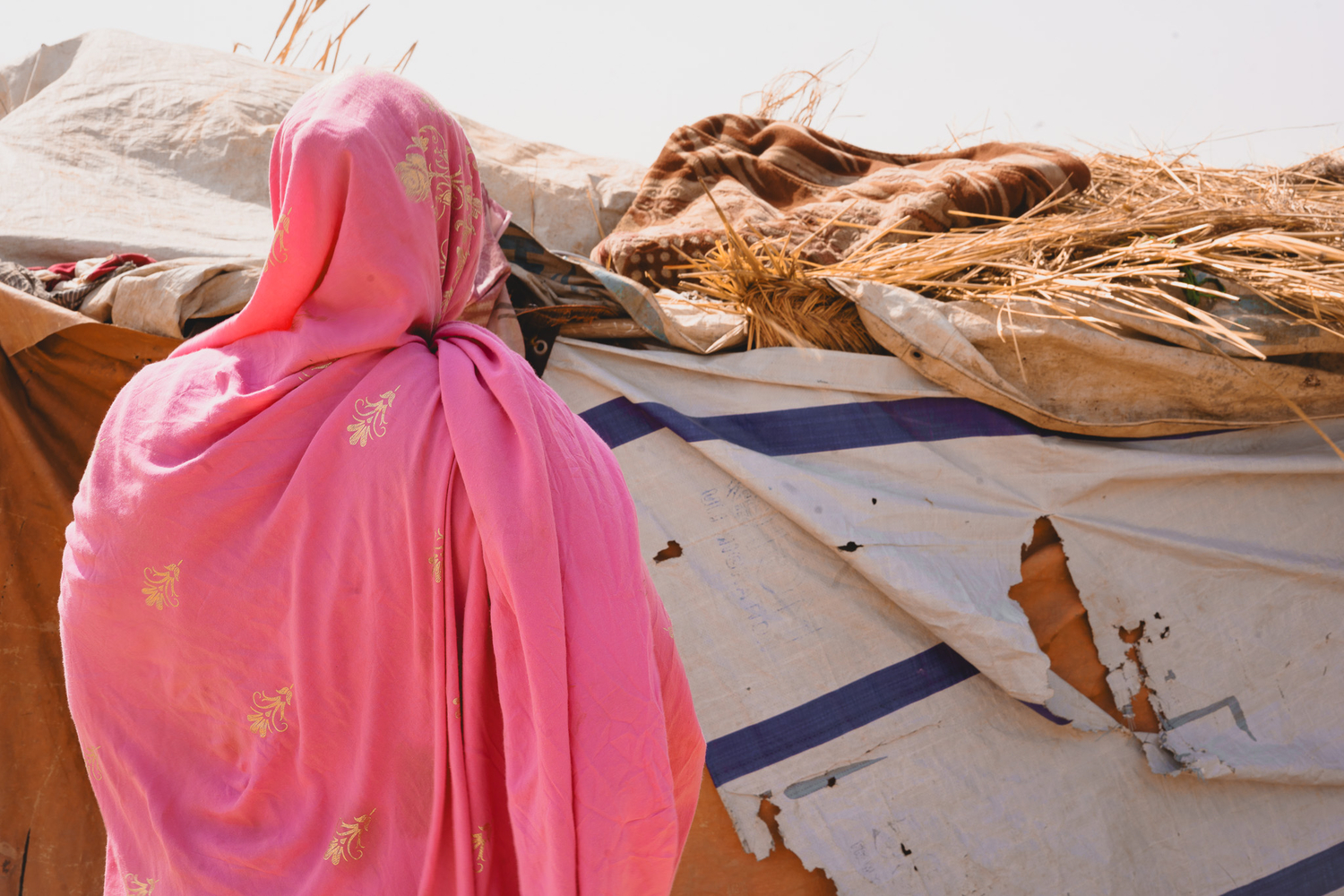
Salma* stands in front of the makeshift shelter in eastern Chad where she lives with her three children after fleeing conflict in Sudan.
The family are now living in eastern Chad, where Salma registered with UNHCR and received food assistance and medical attention. But despite the help she has received, her situation remains bleak. She earns a little money doing odd jobs for her neighbours to help keep her children fed, but she still suffers from pain in her back and abdomen following her attack.
“I have to work despite the pain; otherwise, who will feed my children?” she asked. “Our children should be in school for their future. I just want my children to go to school and be safe.
“Before, I used to live in good conditions, but since my husband was taken, I have no one to help me,” Salma added. “People told me that he was killed but I did not see it with my own eyes.”
In 2023, UNHCR recorded a surge in cases of gender-based violence in eastern Chad where most refugees from Sudan have arrived, more than double the previous year. The true scale of the problem is likely even greater, with severe under-reporting of incidents due to fear of stigma and retaliation – a trend repeated in other countries hosting refugees from Sudan.
Underfunded response
All recorded survivors of gender-based violence (GBV) in Chad have received psychosocial support from UNHCR and its partners, while many also received medical attention, legal assistance and cash support. However, the scale of the emergency and the lack of available funding is hampering UNHCR’s response, explained UNHCR’s GBV Officer for eastern Chad, Nadine Sekaganda Mutunzi.
“There is not enough funding to implement the different services ... to help all the victims and survivors of GBV,” Mutunzi said. “Here, for example, in [eastern Chad], we confine ourselves to the strict minimum. We are not really able to provide the holistic response," which would include measures to empower survivors by providing employment and training opportunities, for example.
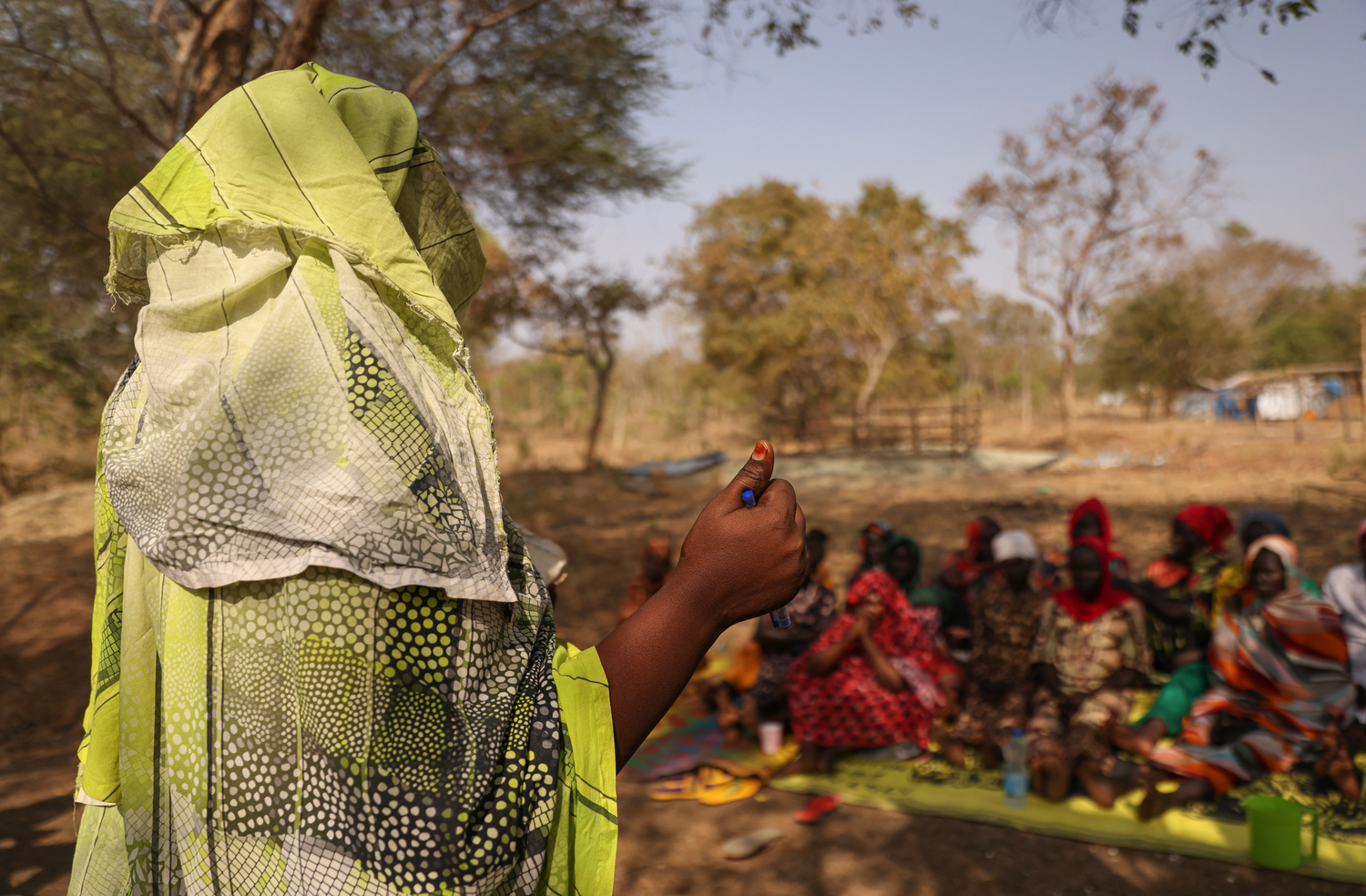
Fatima* reads scripture during a Bible study group at the refugee reception site in Ethiopia where she lives.
Back in Ethiopia, Fatima has a clear message for the leaders of Sudan’s warring factions as she and her children face an uncertain future as refugees.
“My message to them is to stop fighting … let them bring back peace. We need peace so we can go back to Sudan – so that everyone can go back to their own home.”
*Names have been changed for protection reasons


